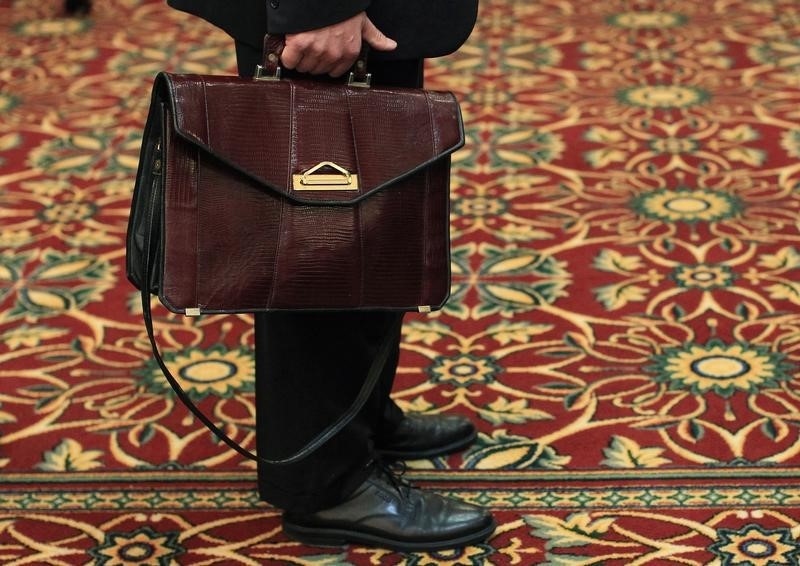By Lucia Mutikani
WASHINGTON (Reuters) - U.S. job growth was likely solid in May and wages probably picked up a bit, suggesting sufficient momentum in the economy for the Federal Reserve to raise interest rates later this year.
Nonfarm payrolls likely increased by 225,000 positions last month after rising by 223,000 in April, according to a Reuters survey of economists. The unemployment rate is expected to hold steady near a seven-year low of 5.4 percent.
The Labor Department will release its closely followed employment report at 8:30 a.m. (1230 GMT) on Friday amid concerns over the economy's inability to rebound strongly from a first-quarter slump.
"While economic growth is not as strong as we would like it to be, we have seen some good economic data points," said Karyn Cavanaugh, senior market strategist at Voya Investment Management in New York. "There is really no reason that a zero interest rate is appropriate."
The Fed has kept overnight rates near zero since December 2008. Officials from the U.S. central bank will meet on June 16-17, but the economy's sluggishness has left financial markets doubting whether the Fed will be able to raise rates this year.
U.S. gross domestic product contracted at a 0.7 percent annual pace in the first quarter, although the drop probably exaggerated the economy's weakness given a mix of temporary factors at play.
Even so, growth is off to a slow start in the second quarter, in part because of the lingering effects of a strong dollar and spending cuts in the energy sector.
Payroll gains have slowed from last year's average of 260,000 jobs per month. Economists put the blame on steep job cuts in the mining sector and the restraining impact of a strong U.S. currency on exports and the factory sector.
SOLID, SUSTAINABLE GAINS
If the payroll gain comes in as expected in May, it would mark an acceleration from the first quarter's average of 184,000 jobs per month.
"It is perhaps a testament to how far the improvement in the labour market has progressed that job gains less than 250,000 now seem to be considered lacklustre," said Michelle Girard, a senior economist at RBS (LONDON:RBS) in Stamford, Connecticut.
"To the contrary, policymakers no doubt view gains of that magnitude as solid, sustainable and sufficient to keep the unemployment rate on its downward trajectory, sufficient to meet the pre-requisite for a rate hike."
The unemployment rate is within striking distance of the 5.0 percent to 5.2 percent range that most Fed officials consider consistent with full employment.
The jobs report is expected to show steady gains in wage growth. Average hourly earnings are forecast increasing by 0.2 percent in May after barely rising in April.
"The risk is finally moving to the upside, given the firming demand for entry-level workers and improving composition of employment gains," said Diane Swonk, chief economist at Mesirow Financial in Chicago. "The minimum wage ... has picked up over the last year, which is showing up as upward pressure on wages for low-wage jobs."
Walmart (N:WMT), the largest private employer in the United States, this week announced it would raise minimum wages for more than 100,000 U.S. workers, its second wage hike this year.
Economists anticipate that payroll gains last month were broad-based, though the mining sector probably purged more jobs as it works through the thousands of cuts announced by oil-field companies. Schlumberger (N:SLB) has announced about 20,000 layoffs this year. Baker Hughes (N:BHI) and Halliburton (N:HAL) are also cutting thousands of jobs.

A strengthening housing market likely lifted construction employment, and manufacturing payrolls probably picked up a bit as automakers ramped up production.